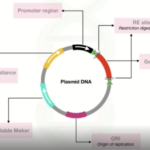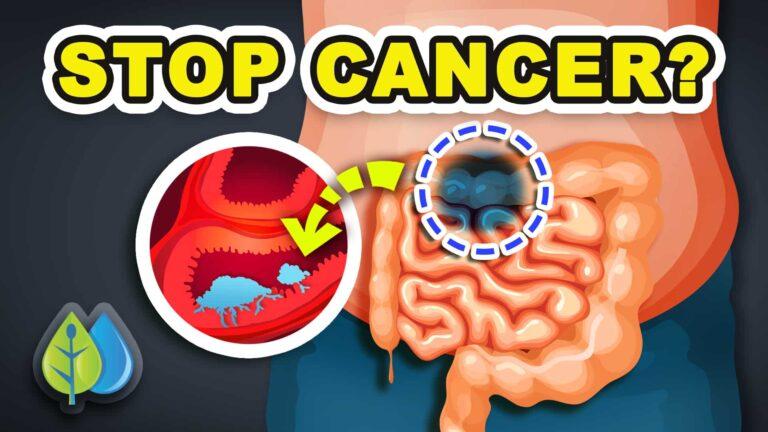How fasting fish could help scientists make us live longer Fasting: Humans have been doing it for centuries. But there’s a lot we still don’t know about its benefits and drawbacks. In a new episode of the DW podcast Science Unscripted , Conor Dillon and Gabriel Borrud discussed a studyfrom the Max Planck Institute on Aging in Cologne, Germany, that investigates what happens when fish fast. Conor and Gabe spoke with the institute’s director, Adam Antebi. This interview is an excerpt from our podcast Science Unscripted. If you are interested in the full interview (and want to see how fasting could impact our lifespan too), you can watch this episode of Science Unscripted on YouTube. Or you can subscribe to the audio podcast. DW: Before we talk about what happened with the fish, one thing to clarify. Does fasting work? What does it actually do? What does the research say about it? Adam Antebi: A lot of people are engaging in intermittent fasting or caloric restriction because it has health benefits. It seems to lower blood glucose and reduce cholesterol and reduce, in some cases, age-related disease. I think there are clear health benefits for many humans and model organisms as well. The question is, though, is it true at all ages and for all people? What did you do in your experiment? You were working with fish. Actually, it started before us. This is work from other people. If you look at mice and you try to do diet restriction in older age, they don’t respond as well. They don’t get the benefits. And it’s not understood why. It’s also true even with humans, that if you lower protein early in life, you get health benefits. But later in life it seems those health benefits seem to go away to some extent. So we use the killifish as our model system, because this fish only lives about six to eight months and we can in real time see the impact of fasting in young and old animals and the effect it has on the lifespan of the animal. So, basically, if I fast early in life, it’s going to influence me, usually with a positive effect. And later in life, either not at all or not as much. And with a fish you can do that over the course of eight months. “Later life” with the fish would be their sixth month or something? It’s more like four and a half, five months where we start these experiments. You know, a lot of people want to lose weight. Fasting or reducing calories or having intermittent fasting is a good way to lose weight. And so that’s beneficial. But if your goal is to preserve your muscle, this is really where the questions start to arise. And in a young person, they can probably maintain their muscle mass. In older people, it becomes an issue, because one of the things about aging is you tend to lose muscle sarcopenia. And so fasting could have a detrimental effect. So, we really wanted to explore this in a rigorous way in these fish. What happened with the fasting killifish? It was quite a surprise. We expected that the young fish would perform better than the old fish. But what we saw was, when we fasted young fish, there were changes in genes that go up and down. When we looked at older animals, the number of genes that went up and down were much smaller. And we thought at first, well, maybe they just don’t respond to the fasting part. But what we found was that they don’t respond to the feeding part, and they seem to be stuck in this permanent fasting trap even though they’re ingesting food. They’re really anabolic resistant in many ways. What is the difference between those two phases when I’m fasting and when I’m feeding? When you’re fasting, you turn down protein synthesis. You usually build proteins for all sorts of activities in your body. But when you fast, you tune that down because you don’t have as many resources to build. You also suppress energy metabolism, and you also start to break down fats and glucose for energy you need. When you’re fed, a lot of that’s reversed. You turn on protein synthesis, you turn on the fat production. You gear up for growth basically. What’s also very interesting is when you fast those old fish, they show signs of increased inflammation above and beyond what you normally have with aging. And so this sounds to us like it’s a detrimental effect to fast an old fish, because you’re increasing the amount of inflammation. And this can be detrimental to many of the tissues that you’re looking at. What was the point of the experiment? Just to find this out in the fish or what? What we really want to understand is why does that happen and what is the mechanism. And one of the things that we discovered from our data, looking what genes were going up and down, was that there’s this energy sensor called the AMP activated kinase. It detects low energy and tries to increase the energy production to keep things in balance. What we noticed is that this enzyme, this energy sensor is made of three subunits. One of them is called the gamma subunit. And what we saw was quite striking. The gamma one subunit was going up in the fed state. In young animals, gamma two subunit was going up in the fasted state. They were in this inverse relationship. And with aging gamma two is always up, the gamma one never comes on. We think that this fasting-feeding cycle is very important for the health. You must turn up gamma two during fasting and turn up gamma one during the feeding stage. Is it possible to take these two sliding levers, gamma one and gamma two, and slide them in the older fish to make them young again? Yeah. This is why we use these model genetic organisms. Because we can manipulate them genetically very easily. Our idea was, if the gamma one is low in an aged fish, why not activate it genetically and see what happens to the fasting response and what happens to the metabolic health. What happened? Remarkably, what you see is that a young animal had a normal fasting feeding response. And in an old animal they also had a youthful fasting repeating response. And it looks perfect. They have much lower levels of inflammation. They don’t break down fat, they synthesize it. And most of all, their energy metabolism seems to be up. Did they live longer? Yeah. That’s the most amazing thing. This one amino acid change caused these fish to live about 10% to 20% longer. And it’s also not only that they live longer, but if you look in the different tissues of this fish, they look much more youthful. For example, if you look at regeneration of the fin, there’s a lot more regeneration going on in those older animals. We think this is a really cool result. And now we have this long-lived, more healthy fish that we can study in detail and get it more mechanisms. What about us? About humans? Could you say one amino acid could change our lifespan? Well genetically not, but maybe pharmacologically. That would be one of the goals. But let me address your question in another way. Do we see the same kind of dynamics in humans? And I would say we haven’t fully addressed that. But from what we can see in the data that we have looked at is that in humans, the gamma one, like in the killifish, goes down with aging. We did a very nice collaborative study with some of the geriatricians here at University of Cologne at the clinics. They’re looking at people and their frailty and ability to function in old age. We found that, if you look at the level of gamma one expression in those people, in the frailest individuals, the gamma one is the lowest. When gamma one is low, they’re the frailest. And when gamma one is higher, they’re the healthiest. We think it could be a biomarker for health and longevity in humans. That needs to be determined. And right now, we don’t know if there’s a causal effect. And there are a lot of questions that remain to be answered. But there might be human connection. This interview was conducted by Conor Dillon and Gabriel Borrud. It has been edited and condensed for clarity.
This content was originally published here.




















